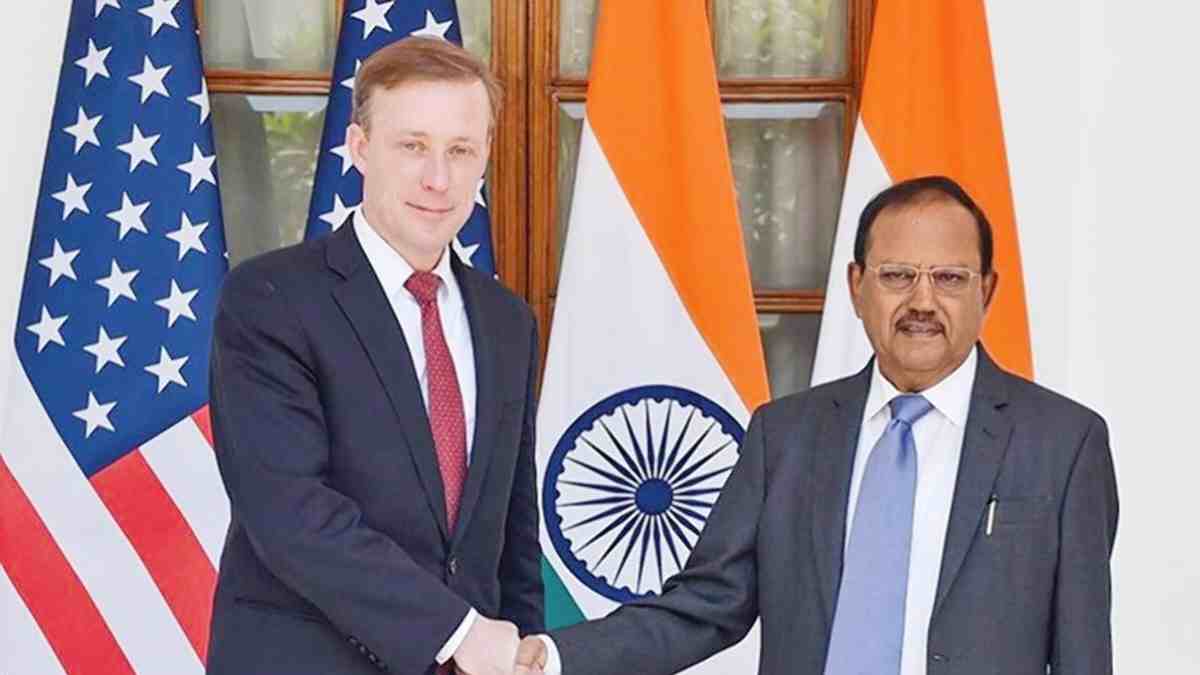
India has not officially responded to the recent decision by the United States to impose sanctions on 19 Indian entities accused of supplying “dual-use” technologies to Russia. The U.S. Treasury Department labeled these companies as “Third-Country Sanctions Evaders,” part of a broader sanction list that includes nearly 400 individuals and companies from 17 different countries, announced on October 30, 2024. The scale of these sanctions, targeting the largest number of Indian firms in a single action related to Russia, has raised significant concerns and questions regarding India’s stance.
Despite several inquiries, the Ministry of External Affairs (MEA) in India has chosen to remain silent on the sanctions. This lack of comment follows a phone call between National Security Adviser Ajit Doval and his U.S. counterpart Jake Sullivan on October 31, during which they discussed regional security developments and collaboration in various sectors, including clean energy and defense. Notably, the U.S. readout from the call did not mention the sanctions, indicating a potential gap in the diplomatic conversation surrounding this issue.
Historically, the Modi administration has refrained from directly addressing U.S. sanctions targeting Indian entities linked to Russia and Iran, asserting that India “does not recognize unilateral sanctions.” The recent sanctions will result in the freezing of all U.S. assets belonging to the sanctioned companies and prohibit U.S. citizens from conducting any transactions with them. The U.S. Treasury, represented by Deputy Secretary Wally Adeyemo, reiterated its commitment to halting the flow of technologies that could support Russia’s military operations against Ukraine.
The backdrop of these sanctions coincides with a thaw in India-China relations, as both nations reported a disengagement from their longstanding military standoff along the Line of Actual Control. This diplomatic easing comes amidst rising tensions between India and Canada, particularly following allegations regarding the involvement of Indian officials in the assassination of a Canadian Khalistani activist. Recent statements from Canadian officials have raised serious concerns, prompting a cautious response from the U.S. State Department, which stated it would continue consultations with Canada regarding these allegations.
While the MEA has not issued a comment on the recent U.S. concerns or the allegations from Canada, it has previously characterized Canada’s claims as “preposterous” and politically motivated. Furthermore, the Indian government has launched a high-level inquiry to investigate the U.S. allegations of its officials’ involvement in the alleged assassination of Gurpatwant Singh Pannun, another Khalistani activist. The lack of a robust diplomatic response from India regarding the sanctions and the unfolding situation with Canada highlights the complex geopolitical landscape India is navigating.
As India balances its relationships with both the U.S. and Russia, the implications of these sanctions could have far-reaching effects on its international standing and economic interests. The Modi government will need to carefully assess its next steps in responding to these developments, ensuring that its diplomatic strategies align with its broader geopolitical goals. The ongoing situation serves as a reminder of the intricate interplay of international relations, where actions and inactions can significantly impact national interests and global partnerships.